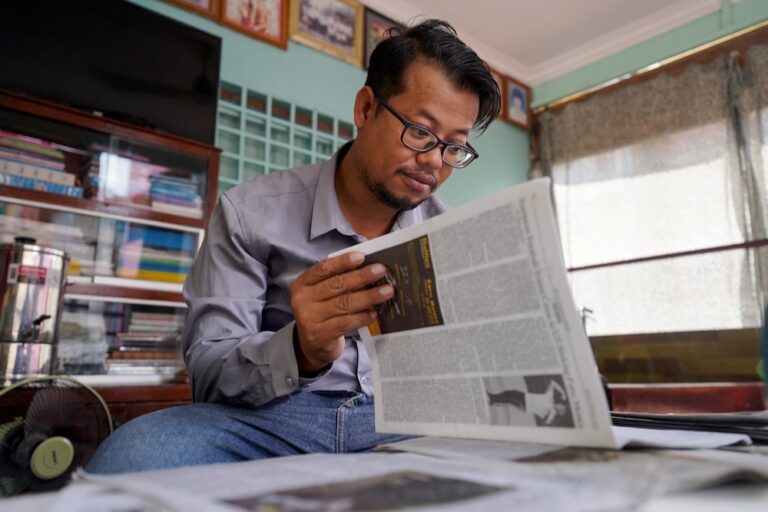Covering the period from 1 April 2019 to 31 March 2020, the monitoring report showed that the space to exercise fundamental freedoms continues to be restricted in Cambodia.
This statement was originally published on cchrcambodia.org on 29 July 2020.
The Cambodian Center for Human Rights (“CCHR”), the Cambodian Human Rights and Development Association (“ADHOC”) and the Solidarity Center (“SC”) are pleased to announce the release of the Fourth Annual Report of the Cambodia Fundamental Freedoms Monitor, produced by the Fundamental Freedoms Monitoring Project (“FFMP”). The report provides a comprehensive overview of the exercise of freedom of association, freedom of expression and freedom of assembly (“fundamental freedoms”) in the Kingdom of Cambodia from 1 April 2019 to 31 March 2020 (Year Four). The fourth annual report is available for download now in Khmer and English. The three previous annual reports of the FFMP are also available in Khmer and English.
The FFMP aims to provide an objective overview of the current state of fundamental freedoms in Cambodia. It identifies trends related to the legal environment and the exercise of fundamental freedoms by systematically and objectively assessing whether, and to what extent, the freedoms of association, assembly and expression are guaranteed and can be exercised in Cambodia.
From 1 April 2019 to 31 March 2020, the FFMP analyzed 1,194 relevant media articles accumulating to 537 Media Monitoring incidents; received a total of 119 Incident Reports; polled 779 members of the public across 25 provinces; and surveyed 142 CSO and TU leaders.
The fourth annual report of the Cambodia Fundamental Freedoms Monitor reveals that the space to exercise fundamental freedoms continues to be restricted. Key developments highlighted in the report include: (a) a continued crackdown on political dissent; (b) silencing of speech, which creates an environment of widespread self-censorship; (c) arbitrary uses of the Criminal Code of Cambodia to discourage public participation and inhibit the exercise of fundamental freedoms – namely the crimes of defamation, plotting, incitement to commit a felony and falsifying information; and (d) a decrease in the public’s understanding of fundamental freedoms.
In Year Four, the FFMP recorded persistent restrictions to the fundamental freedoms, carried out by national and local authorities, demonstrating a lack of compliance with international human rights law and domestic law. The RGC appears to utilize laws, not to protect fundamental freedoms, but rather to curtail civic space and restrict the exercise of fundamental freedoms.
The freedoms of association, assembly and expression are fundamental for the exercise of all human rights, and paramount to a healthy democracy. They empower citizens to engage in activities in the pursuit of bringing about societal change for the better. Without the ability to exercise their fundamental freedoms, citizens of Cambodia and others living in Cambodia, are prevented from being active members of society and prevented from holding rights violators accountable.
In providing insight into the curtailment of these fundamental freedoms, the FFMP seeks to inform positive legislative developments to bring domestic law in-line with international standards and encourage constructive steps to build an enabling environment for a vibrant civil society.



